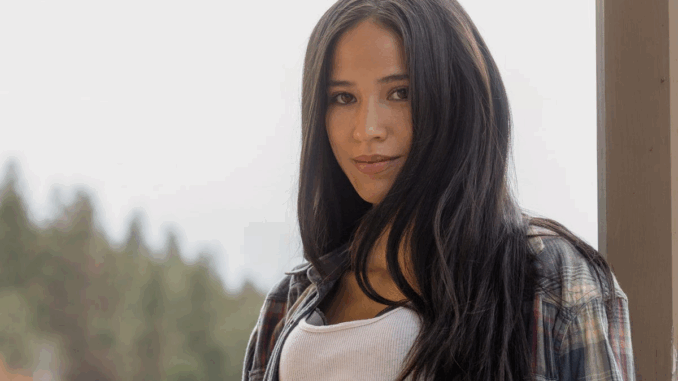
While the initial scandal surrounding Kelsey Asbille’s claim of Cherokee heritage stirred brief media attention, the long-term repercussions have been far more profound. Within Native communities and the entertainment industry at large, Asbille’s case has become a lightning rod in the broader conversation about ethnic fraud—the act of falsely claiming Indigenous identity for personal or professional gain.
In this final entry of our Yellowstone scandal series, we revisit the evolving fallout from Asbille’s controversy, its continuing effects on casting policies, and the pushback from Native actors who are demanding accountability, transparency, and systemic change in Hollywood.
Act I: The “Pretendian” Phenomenon
The term “Pretendian” has emerged in recent years as a powerful and provocative label for individuals who falsely assert Native American heritage. In Kelsey Asbille’s case, her repeated claims of being “part Cherokee” and her casting in multiple Native roles brought her into the center of this discussion.
Critics argue that:
-
She benefited from Native identity without belonging to any federally recognized tribe.
-
Her repeated casting in Indigenous roles took opportunities away from authentic Native actresses.
-
Her silence on the matter implied complicity, if not deliberate misrepresentation.
Act II: Native Community Response
Numerous Indigenous artists, scholars, and activists have publicly denounced Asbille’s claims. One prominent voice, Devery Jacobs (a Mohawk actress known for Reservation Dogs), stated:
“We are so much more than a checkbox on a casting sheet.”
Others emphasized how harmful it is when non-Native individuals claim Indigeneity without accountability, especially when they profit from roles that draw directly from Native experiences.
Petitions were circulated, panels convened, and social media flooded with calls for Hollywood to vet claims of Native heritage more rigorously.
Act III: Silence and Avoidance
Despite mounting pressure, Asbille has never publicly addressed the controversy in depth. Her representatives have also declined to offer clarification regarding her ancestry or any steps taken to verify her claimed background.
This silence has been interpreted by many as evasion, leaving the public to speculate and allowing misinformation to fester.
Industry insiders say the decision to remain silent likely stems from legal caution, but the absence of transparency only deepens distrust among Native advocates.
Act IV: Hollywood’s Reckoning
In response to growing scrutiny, some Hollywood studios and production companies have begun to enforce stricter guidelines for casting Indigenous roles:
-
Requirement of tribal enrollment or proof of Indigenous heritage.
-
Consultation with Native cultural experts during casting and storytelling.
-
Partnerships with Native-led organizations to promote authentic representation.
Yet, critics point out that these efforts are not universal, and Yellowstone has remained largely unresponsive to demands for accountability regarding Asbille’s casting.
Act V: Long-Term Consequences for Asbille and Indigenous Storytelling
While Yellowstone continues to enjoy success and Asbille remains in the spotlight, the backlash surrounding her identity continues to shadow her legacy. Casting directors, particularly on Native-led projects, are reportedly more cautious about considering her for Indigenous roles.
More broadly, the scandal has:
-
Inspired emerging Native actors to speak out more forcefully.
-
Pressured producers to prioritize authenticity over convenience.
-
Sparked dialogue about how “heritage” and “identity” are represented and verified in the industry.
As Native storytelling gains visibility through series like Reservation Dogs and Dark Winds, the standard for authenticity has been raised—and Asbille’s case serves as a stark warning for future productions.
FAQs
Q: Did Kelsey Asbille ever prove her Cherokee heritage?
No. The Cherokee Nation publicly stated that neither she nor her family are registered citizens or known to their records.
Q: Why does this matter so much?
It matters because falsely claiming Native identity can perpetuate erasure, block authentic representation, and exploit Indigenous experiences for personal gain.
Q: Has Yellowstone addressed the controversy?
No official statement has been issued by the show’s creators or studio regarding Asbille’s background.
Q: Are there rules in Hollywood about verifying Indigenous identity?
Some projects now require verification, but industry-wide enforcement is still inconsistent.
Q: Will this scandal affect Asbille’s future roles?
While she continues to work, many Native filmmakers and communities have expressed unwillingness to support or cast her moving forward.
